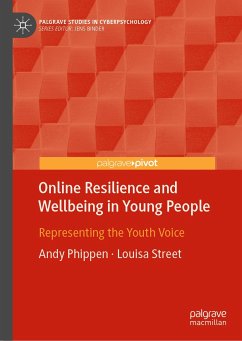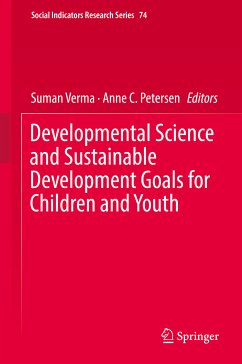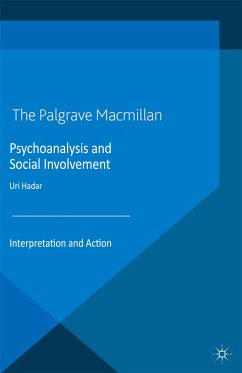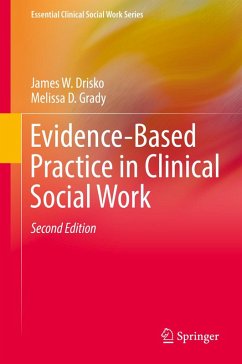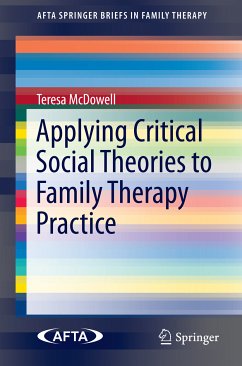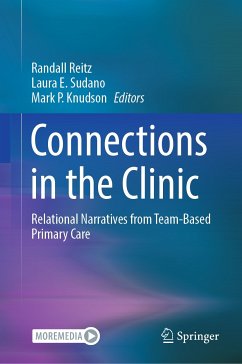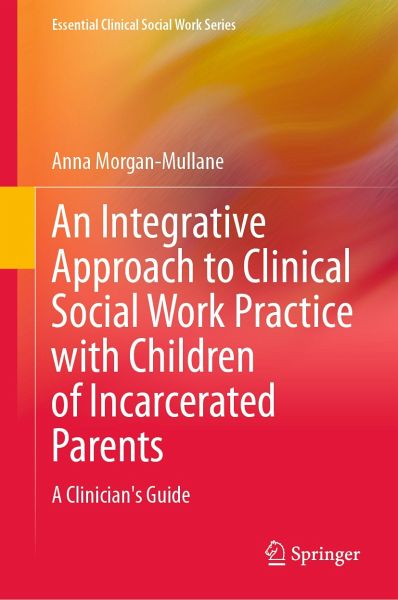
An Integrative Approach to Clinical Social Work Practice with Children of Incarcerated Parents (eBook, PDF)
A Clinician's Guide
Versandkostenfrei!
Sofort per Download lieferbar
72,95 €
inkl. MwSt.
Weitere Ausgaben:

PAYBACK Punkte
36 °P sammeln!
This book is an essential clinician's guide to understanding, unpacking, treating, and healing individual, familial, and communal wounds associated with parental incarceration. Readers gain familiarity with integrative micro and macro healing techniques and modalities that are currently being utilized as anti-racist, anti-oppressive, and innovative practices. They also develop an understanding of and deeper unpacking of their own biases within the therapeutic relationship. The book offers an extensive overview of clinical practice models such as trauma-focused cognitive behavioral therapy, na...
This book is an essential clinician's guide to understanding, unpacking, treating, and healing individual, familial, and communal wounds associated with parental incarceration. Readers gain familiarity with integrative micro and macro healing techniques and modalities that are currently being utilized as anti-racist, anti-oppressive, and innovative practices. They also develop an understanding of and deeper unpacking of their own biases within the therapeutic relationship.
The book offers an extensive overview of clinical practice models such as trauma-focused cognitive behavioral therapy, narrative therapy, and relational and attachment-based therapy for treating trauma symptoms associated with children of incarcerated parents, their families, and their surrounding communities. The author provides guidance on healing complex trauma through phase-oriented, multimodal, and skill-focused treatment approaches, with emphasis on strengthening one's own narrative of power and pain while building community in supportive spaces. Among the topics covered:
- Why Criminal Justice Is Relevant to All Clinical Practitioners
- Impact of Secondary Incarceration: Collateral Consequences for Children and Families
- Psychosocial Stressors for Children of Incarcerated Parents: Conspiracy of Silence and Ambiguous Loss
- Supervision and the Therapeutic Alliance: Critical Consciousness and Anti-racist Clinical Training and Undoing
- Clinical Partnership: Application of Dismantling Anti-Blackness Through Anti-oppressive Practice and Critical Consciousness
An Integrative Approach to Clinical Social Work Practice with Children of Incarcerated Parents enhances therapeutic relationships for social workers, teaches innovative clinical practices most effective for this population, and offers a comprehensive discussion and understanding of the complex traumas faced both historically and presently by children and families impacted by the criminal justice system. Although designed to inspire and train social workers, the guide has significantly wide-ranging application for mental health and medical providers and other clinicians interested in enhancing their work with children and families impacted by the criminal justice system in diverse clinical practice settings. Lay practitioners and policymakers within government and not-for-profit settings also will find the book of interest.
Dieser Download kann aus rechtlichen Gründen nur mit Rechnungsadresse in A, B, BG, CY, CZ, D, DK, EW, E, FIN, F, GR, HR, H, IRL, I, LT, L, LR, M, NL, PL, P, R, S, SLO, SK ausgeliefert werden.





